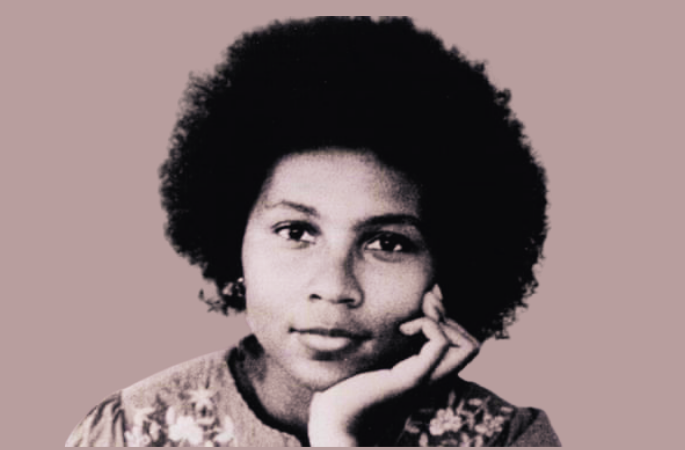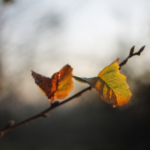Just in case, you woke up early on Thursday the 16th December 2021, read the news of the passing away of bell hooks, and had never heard of her, wondered who this woman of colour was, please do not feel awkward.
Those who know the writer’s name and may look down upon you for not knowing it, may not have really read any of her work seriously.
I envy you.
For you have encountered this fiery voice for the first time, and believe me, reading her for the first time is like being enveloped in a warm, accepting, safe hug.
Who was this black woman, from a land far away you may wonder, how will her writing have any connection with me? Well, you are in for a big surprise. If you are a young woman who feels she has so much to say but does not have the courage to speak up, she will tell you to speak up clear and loud. More importantly, she knows exactly why you hesitate.
“Part of the reason why I needed language is because there was a way my potential, my ability, even my own brilliance, to whatever extent that might exist, was muted because I’m a woman, because I was a girl,”
If you are a young man who feels misunderstood, she will speak with you about how you deserve to be loved, but also ask you to find non-violent ways to express your love.
If you have worked hard and achieved, but do not think of yourself as a successful person, bell hooks will tell you to stop looking for validation from outside and how to generate self-esteem inside yourself, and how we are all works in progress.
If you are a young woman from a minority community who wants to say ‘thanks but No thanks’ to any seemingly benevolent, but actually interfering patriarchal ‘reforms’, and instead want to fight for your rights as a citizen, bell hooks will give you the language to put this across.
She will tell you lovingly how marginality is not just a space for oppression but can become a radical space for resistance too.
If you are a Dalit woman who wants to question the larger, ‘mainstream’ feminist movement, you will find that bell hooks has asked difficult questions to the white leadership in the feminist movement in Ain’t I a woman? Way back in 1981.
“It is obvious that many women have appropriated feminism to serve their own ends, especially those white women who have been at the forefront of the movement; but rather than resigning myself to this appropriation I choose to re-appropriate the term ‘feminism’, to focus on the fact that to be ‘feminist’ in any authentic sense of the term is to want for all people, female and male, liberation from sexist role patterns, domination, and oppression.
If you are a teacher struggling to reach out to everyone in your diverse classroom. If you have doubts as to the distance between your students’ reality and theory being too great, and ask yourself whether you continue to teach them theory which was made by someone whose life is too privileged compared to the lives of some of your students, bell hooks will guide you.
“We must continually claim theory as necessary practice within a holistic framework of liberatory activism.” – Teaching to Transgress.
If you are a woman writer and have doubts, bell hooks will reassure you, even goad you into writing, if need be.” No Black woman writer in this culture can write ‘too much’. Indeed, no woman writer can write ‘too much’ … No woman has ever written enough.”-Remembered Rapture.
Or if you are a young person, embarking on the experience of love, she will give you her six point-rule: “Care, Commitment, Knowledge, Responsibility, Respect and Trust.”
At the same time, she will tell you- “Knowing how to be solitary is central to loving. When we can be alone, we can be with others, without using them as a means of escape”
The list could go on. bell hooks has meaning and significance for all of us.
She always will.
On 15th December 28, 2021, Dr bell hooks passed away at her home in Berea, Kentucky, USA.
Her writing will live on for all of us.
bell hooks wrote forty books including the seminal Ain’t I a Woman: Black Women and Feminism(1981), Feminist Theory: From Margin to Centre(1984).
bell’s books are not the kind to languish dustily in the form of a few old copies.
Almost all the 40 books are in print and are read by people across gender, class and race.
The books are free of jargon, although they theorise complex issues. “I am an intellectual who wants to be Whole”, bell hooks once said, “That is why I am part of the wholeness. I love what is called the ‘mass’. I want to write books that touch the pulse of diverse audiences.”
The books are enjoyable. Read them.
You may choose only one book, or maybe only one article, but read it in its entirety.
A weird reductionist process that the internet lists facilitate, has made bell hooks famous for her ‘quotes’.
Intelligent, witty, and often ‘catchy’ words she said to make difficult philosophy, complex ideas, accessible to the people. I have heard some people quote bell hooks in writings and conversations.
But what are they quoting from? The context is lost. The story she has told or a philosophical argument she has put across is unread.
While listening to Indian music, we anticipate the same.
It is the point of focus, of emphasis, or even an emotional catharsis or musical release. The enjoyment of the sam is not in a single moment, but in the exploratory journey that the artist took you on in that entire cycle before she brought you to this point of realisation.
Similarly, bell’s ‘quotes’ ‘on love’, ‘on racism’, ‘on patriarchy’, ‘on the community can be better understood if we join in the journey that culminates in those gems. The journey towards knowledge, and understanding, the experiences she went through, and most importantly, the pain she suffered to arrive at that knowledge.
bell hook’s name is written in lowercase letters on her request both to honour her great-grandmother and to convey that what is most important to focus upon is her works, not her personal qualities.



